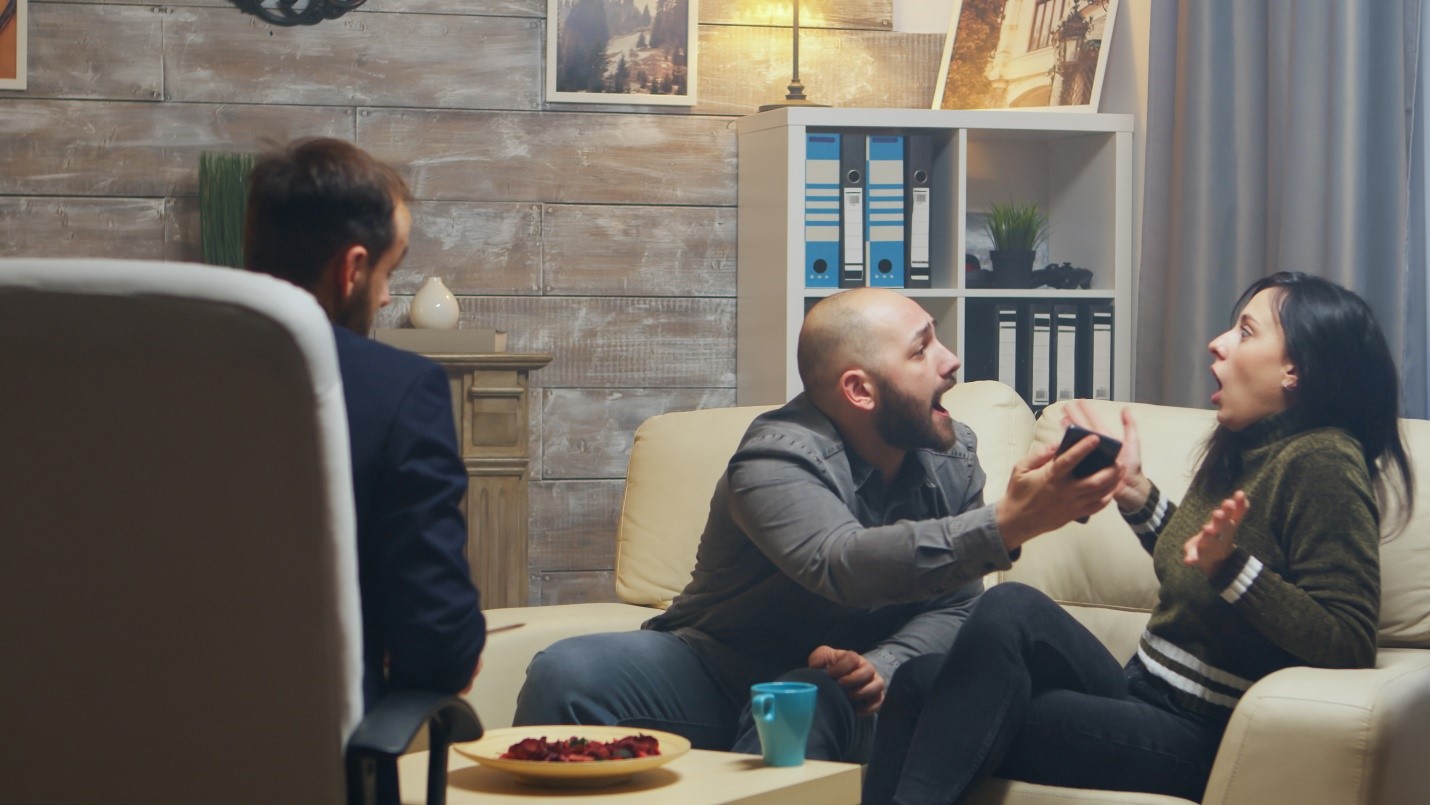Blog
How Long Does Couples Counseling Usually Take?

Many couples begin therapy with one big question: “How long will this take?” It is a natural question. You may hope for a quick fix, or you may fear a long process. The truth is that every couple’s journey is different, but still, there are common patterns and helpful signs that can guide you. Understanding these patterns can lower stress and give you a realistic picture before you start.
This guide will walk you through:
- Typical timelines for couples counseling
- Key factors that influence how long therapy lasts
- Ways you and your partner can make the most of each session
- Signs that you are ready to “graduate”
- How faith and spiritual support can make a difference
By the end, you will feel more confident about what to expect and how to move forward.
Typical Timelines for Couples Counseling
Counseling does not follow a single clock. Yet therapists often see three main timelines: short-term, medium-term, and long-term.
1. Short-Term: About 6 to 12 Sessions
Short-term counseling works best when:
- You and your partner face a clear, specific problem—like a recent argument pattern, a parenting conflict, or stress about a move or job change.
- Both partners want to learn new skills quickly and practice them at home.
Sessions often last 45–60 minutes and take place once a week. In these meetings, the therapist helps you:
- Identify the problem
- Practice better communication
- Learn conflict-resolution skills
Because the focus is narrow, you can make strong progress in a few months.
2. Medium-Term: About 3 to 6 Months
Medium-term counseling fits couples with deeper or longer-lasting issues, such as:
- Ongoing fights that never seem to stop
- Emotional distance that grew over the years
- Challenges in blending families
You and your partner explore the roots of repeated conflicts and look closely at habits and triggers. Some therapists add occasional individual sessions so each person can reflect on personal feelings. Meeting weekly or every other week for three to six months gives enough time to build trust, learn new tools, and form healthier patterns.
3. Long-Term: 6 Months or More
Some couples need more time, often because of:
- A major breach of trust, such as infidelity
- Deep trauma, grief, or past abuse
- Many years of painful disconnection
In long-term therapy, you rebuild trust step by step. You create new ways to connect and support each other. After steady progress, some couples continue with maintenance sessions every month or two. These “check-ins” keep growth steady and help prevent old habits from returning.
Factors That Shape the Timeline
Why do some couples need just a few months while others continue for a year or more? Several key factors influence the length of therapy.
Your Goals
If your goal is to solve a single conflict—such as agreeing on parenting rules—you may need fewer sessions. If you aim to heal years of hurt or rebuild trust after betrayal, the journey will naturally take longer.
Session Frequency
Weekly sessions usually help couples improve faster. Meeting every other week or once a month slows the pace because more time passes between practice and feedback.
Openness and Effort
Couples who speak honestly and practice new skills at home often progress more quickly. Avoiding hard truths or skipping homework can stretch the timeline.
Outside Stressors
Work demands, health problems, or family pressures can affect how fast you move forward. When outside stress is high, it may take extra time to stay focused on your relationship goals.
Therapy Style
Different therapists use different methods. For example, Emotionally Focused Therapy (EFT) often takes 8–20 sessions, while the Gottman Method recommends about 10–20 sessions. Your therapist will explain their approach and what you can expect.
Signs You Are Ready to Finish Counseling
Couples often ask, “How do we know when it’s time to stop?” While every pair is different, common signs include:
- You talk openly without fear or blame.
- Conflicts feel manageable and respectful.
- You feel close and supported by each other.
Some couples return for a “tune-up” a few months later, which is normal and healthy. Think of it like a routine check-up for your relationship.
How to Make the Most of Every Session?
Your effort between sessions is just as important as the hour you spend in therapy. Here are simple ways to speed your progress:
- Prepare Before Each Session: Spend a few minutes with your partner talking about the week. Note any new issues or successes you want to share.
- Practice at Home: Try the communication or conflict-resolution skills you learn. Real change happens in daily life, not just in the therapy room.
- Stay Patient: Growth rarely moves in a straight line. Some weeks feel smooth; others may feel hard. Remember that small steps count.
- Support Each Other: Encourage your partner, even when the process feels tough. Celebrate progress together.
Role of Faith in Couples Counseling
For many couples, faith brings extra strength and comfort. Prayer, shared devotion, and faith-based counseling can help you stay hopeful and connected.
At Ahava Counseling & Consulting, we honor your beliefs. If you wish, we can blend spiritual guidance with proven therapy methods. This approach may include:
- Prayer during sessions
- Scripture or spiritual readings
- Faith-centered coping tools
- Support from a faith community
When you invite faith into counseling, you often gain a deeper sense of purpose and unity.
Why the Journey Is Worth the Time?
It can feel hard to set aside time each week. You may wonder if the effort will pay off. The answer is yes.
Couples counseling helps you:
- Build stronger communication
- Deepen trust and intimacy
- Create a clear plan for the future
- Handle stress together instead of apart
These benefits last long after therapy ends. The hours you spend now can bring years of closeness and peace.
Life Scenarios
Imagine a couple married for 15 years. They love each other but argue almost daily. They start therapy hoping for a quick fix. In the first few weeks, they learn basic communication skills. By the third month, they see how old family patterns shaped their fights. By month six, they feel more connected than they have in years. They choose to meet once every two months to keep growing.
Key Takeaways
- Short-term counseling often lasts 6–12 sessions for a focused issue.
- Medium-term counseling may last 3–6 months for deeper habits or conflicts.
- Long-term counseling can continue for 6 months or more when rebuilding trust or healing trauma.
- Progress depends on goals, effort, outside stress, and the therapist’s method.
Your relationship deserves care and attention, whether you need a few sessions or a longer journey; help is ready for you.
Schedule a couples counseling session with Ahava Counseling & Consulting today and take the first step toward a stronger, more loving partnership.



